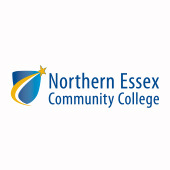
(View Complete Item Description)
This text gives an overview of development, beginning in the mother’s womb through about the age of eight. It starts with a look at perspectives of early childhood, including how children have been viewed historically as well as cross-culturally. Following this chapter, there is a complete overview of the important theorists that have helped to deepen and bring clarity to how children develop. These theories include psychodynamic, behavioral, social cognitive theory, cognitive theory, humanistic, multiple intelligence, growth mindset, and Bloom’s taxonomy. Understanding the implications of each theory is important foundational knowledge for the study of development.
Chapters Three and Four give an overview of the domains of development, followed by an overview of the developing brain. Chapter Five takes a look at the prenatal period, including the birth and postpartum process. Chapter Six describes development in infancy, and Chapter Seven describes the toddler years, including safety considerations that are critical for this period. Chapter Eight looks at the preschool years, including the role of peers, play, and television (and other electronics) in development. Chapter Nine concludes the text with a brief look at the start of what is known as the school-age years, universally recognized as between the ages of five and eight.
Material Type:
Textbook
Authors:
Deirdre Budzyna,
Doris Buckley

















